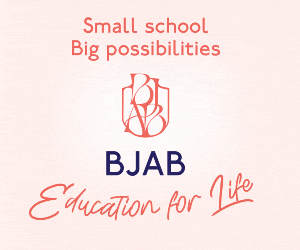In our latest Mindfulness coaching article our life coach expert Atefeh Sadeghi explains how the pandemic has revolutionised our way of working – for the better.
When Covid-19 struck, work structures changed. Many people were able to look at their position, how their company operates and how they perform in different settings without a supervisor or colleague looking over them. As we enter life after the pandemic, the need to reassess our self, priorities and career decisions has emerged.
This search is encapsulated in what is already known as the Great Resignation. This phenomenon, which originated early 2021 in the United States, of dissatisfied, exhausted workers resigning en masse, has spread all over the world. So many people, realising the possibilities of a fresh form of living, the joy of flexible work hours that can fit around family or personal needs and desires, are setting up their own independent systems to generate an income. Several people have already marked that step in the past two years. The growth of consultancies in the US and Europe able to cater for different sectors is proof of this trend.
This new ideology has also resulted in a thirst for learning. With new systems, markets and demands, comes a wealth of original information to grasp. Look at computers: when they first hit the market, people realised that if they did not have computer knowledge they would tumble behind a more skilful generation. In the same way, with all this new information, knowledge, talent competition and skills, success is no longer about having an income – it is about how money is earned. Success means understanding what talent is needed, the knowledge to make it possible and what outcome is possible beyond just being reliable.
In other words, instead of an income gained by serving someone else, your earnings are used to build profitable avenues for a lifestyle that enriches your soul and sense of success. We are always hearing that what matters is being happy, but for a number of reasons, this notion has not been taken up by many people.
This realisation is only really coming to light now. It is even stronger if you are unhappy in your job and understand that success and earnings from it amount to nothing. The younger generation are leading the way in this trend.
There is another lesser known but crucial side effect of working for yourself. It relates to the simple truth that societies are structures made of people, by people and for the people. So the most important result of ‘the big resignation’ is not its threats on labour markets, or implications on tax payment and tax systems. It is the massive impact this ‘resignation’ will have on all societies that deal with the phenomenon.
Now let us consider mindfulness, a practice already developing in the past few years, in parallel to ‘the big resignation’. I see mindfulness as that superior element that has paved a golden and extraordinary way to achieving self-sufficient jobs. Mindfulness is being aware of your whole being and your choices. It would be impossible for someone unaware of their own desires, needs, and potential to even begin to fathom building a different lifestyle for themselves through restructuring their work.
 In other words, an individual who is unaware of who they are, where they are and what they want would not be able to see past the safety net of a system in place for decades – a system of familiarity, security and stability. I also see mindfulness in three layers: mindful of self, mindful of how others impact me and mindful of how I impact others.
In other words, an individual who is unaware of who they are, where they are and what they want would not be able to see past the safety net of a system in place for decades – a system of familiarity, security and stability. I also see mindfulness in three layers: mindful of self, mindful of how others impact me and mindful of how I impact others.
We can assign such a meaning to mindfulness and how it has led to the current phenomenon via a clear mind map. The key question to ask ourselves, with the hope that others will reflect on this too, is: When I am changing something in my life, how does it affect my surroundings? This starts with your immediate close circles of family and friends and stretches to society as a whole. It is fascinating to think that what may seem solely about your personal life could influence society at large.
The security of a job embedded in a well-designed package of social security contributions and pension plans has created our current social systems. But today, these are seen to be insufficient, creating a constant need for upskilling. If that were not the case, people would not be leaving their jobs. So we must navigate our way towards new challenges mindfully, by threading the third layer of mindfulness carefully. This is the layer of ‘how my acts affect others’. If we fail to do that immediately, we must brace ourselves to be forcibly challenged by societies which may have no regard for a life of community and well-being. And has not the pandemic provided us with the greatest lessons on our need for one another already?
Being mindful about how one’s career shift will impact others is not about stepping back from building one’s dream work structure. It means finding what the impacts are and capturing them to fit into the best and most nourishing environment for everyone. To be healthy, you need to live in a healthy society and a healthy society means healthy individuals who are mindful at all levels.
A mindful environment provides everything one needs to thrive. So your career move can only work if it is mindful, and this in turn will back up a healthy society.
Read Learning to meditate: Discover the 10x10x10 meditation method…







